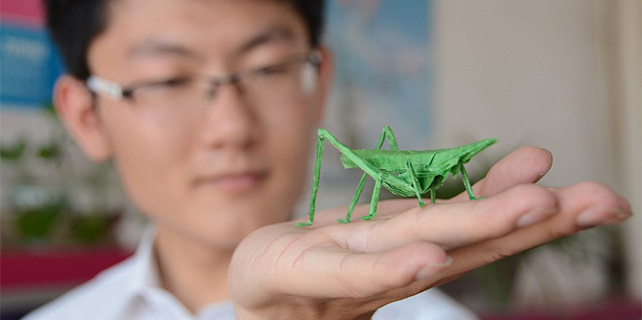A mind of its own

As the adoption of artificial intelligence gains pace around the world, the question of whether this exciting new technology is a friend or foe to humans is one that is divided in opinion
Robots have been steadily taking over the jobs of humans in manufacturing sectors and some have even proved to be more capable in handling highly complex tasks.
As such, many companies around the world have in recent years embraced artificial intelligence (AI) as a means of boosting productivity and efficiency. In its bid to become a global science and technology hub, Shanghai too has trained its sights on AI.
"Intelligence has been identified as a key characteristic for the next generation of robots and the Chinese government is actively promoting a technological revolution in this regard through a variety of exchanges," said Jin Li, vice-president of Fudan University, during a recent intelligent robotics forum between China and the United Kingdom in Shanghai.
While China may be a latecomer in robotics development and technology, it is today the world's largest robot market that accounted for half of the sales of new robots globally between 2014 and 2016, said Fu Guoqing, chief engineer of the Shanghai Science and Technology Commission.
Earlier this year, China's Ministry of Science and Technology established a 2 billion yuan ($294 million) special fund for intelligent robot research and development, according to China Securities Journal.
Zhu Sendi, a consultant with the China Machinery Industry Federation, pointed out that intelligent manufacturing and robots are key factors in realizing the "Made in China 2025" plan. He added that many institutions and organizations have made different projections about the size of the AI market, expecting it to range from $18.3 billion to upwards $180 billion by 2020.
Over at Fudan University's Institute of Science and Technology for Brain-Inspired Intelligence, a project called Shanghai Brain aims to combine brain research techniques such as high precision brain imaging, multi-channel in-body recording and in vivo neuronal activity with brain-inspired computing to enhance early diagnosis and treatments for brain diseases.
"We are trying to develop the artificial general intelligence (AGI), a robot with a brain that is capable of reinforcement and deep learning," said Feng Jianfeng, the dean of the institute.
Despite the lack of a clear timeline, the Shanghai Brain project has already received 200 million yuan in investments.









